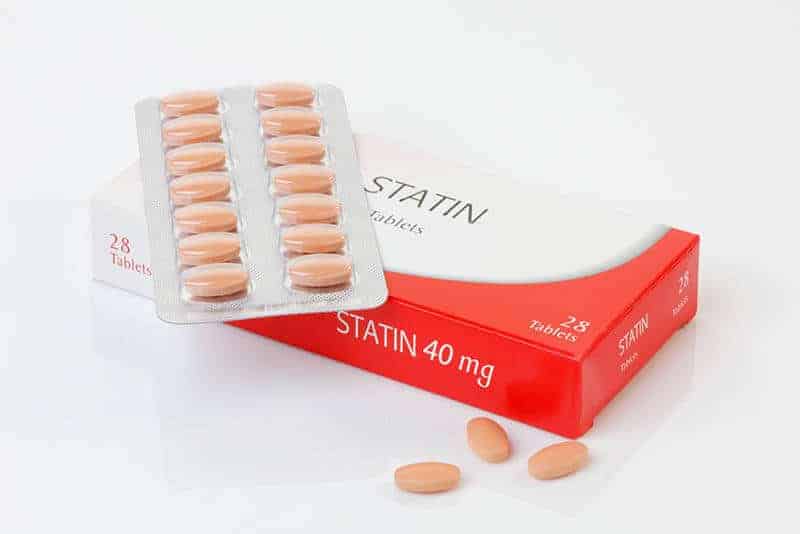Cholesterol-lowering statin drugs most likely do not cause short-term memory loss, according to a Rutgers University and University of Pennsylvania study of nearly one million patients – contrary to prior assertions.
Limited previous studies and some statin-drug takers have anecdotally reported memory lapses after taking popular lipid-lowering drugs (LLDs) called statins, said Brian L. Strom, chancellor of Rutgers Biomedical and Health Sciences (RBHS) and lead study author. The result has been that some people have stopped taking their statins, inappropriately, Strom said.
About 610,000 people die of heart disease in the United States every year – that’s 1 in every 4 deaths, according to the Centers for Disease Control. One in four Americans over age 45 take statins, drugs that inhibit a liver enzyme that controls the synthesis of cholesterol and lowers LDL, commonly known as “bad cholesterol.” Statins have proven very effective at lowering high cholesterol, one of the major risk factors for heart disease, and preventing heart attacks and deaths. If a statin drug alone is not effectively reducing cholesterol numbers or a patient doesn’t tolerate the drug, nonstatins are often prescribed, Strom said.
The study, published today in The Journal of the American Medical Association-Internal Medicine, compared new users of statins with people not taking statins. New statin users also were compared to a second control group – patients taking nonstatin LLDs – which had not been done before.
More patients taking statins indeed reported memory loss in the 30-day period after first taking the drugs, compared to non-users, the study found. The same, however, was found with the nonstatin LLDs. “Either it means that anything that lowers cholesterol has the same effect on short-term memory, which is not scientifically credible because you’re dealing with drugs with completely different structures,” Strom said. Or, he said, “detection bias” is more likely the reason, meaning patients taking a new drug visit their doctors more frequently and are highly attuned to their health.
“When patients are put on statins or any new drug, they’re seen more often by their doctor, or they themselves are paying attention to whether anything is wrong,” Strom said. “So if they have a memory problem, they’re going to notice it. Even if it has nothing to do with the drug, they’re going to blame it on the drug.”
Other studies have already confirmed that statins improve long-term memory, so Strom said the findings indicate short-term memory loss is not a concern either: “You shouldn’t worry about short-term memory problems from any statins and, long-term, we know they improve memory.”
The upshot: “People who have high cholesterol should be on statins,” Strom said. Statins include atorvastatin, cerivastatin, fluvastatin, pravastatin and simvastatin, while nonstatin LLDs include cholestyramine, colestipol hydrochloride, colesevelam, clofibrate and gemfibrozil.
“This is a very effective therapy, which is very safe,” Strom said. “No drug is completely safe. But it has an opportunity to dramatically reduce heart disease in the country. People shouldn’t steer away from the drug because of false fear of memory problems.”
The study, “Statin Therapy and Risk of Acute Memory Impairment,” compared 482,542 individuals taking statin medications to 482,543 randomly selected individuals not taking any LLDs. The second control group included 26,484 users of nonstatin LLDs.
Strom conducted the research with Rita Schinnar, Sean Hennessy, Valerie Teal and Warren B. Bilker from the Center for Clinical Epidemiology and Biostatistics at the University of Pennsylvania Perelman School of Medicine, and Jason Karlawish from the Penn Memory Center and the Department of Medical Ethics and Health Policy at the University of Pennsylvania. Researchers analyzed patients’ primary medical records from general practitioners in the United Kingdom from The Health Improvement Network from July 2013 to January 2015. Patients with a prior history of cognitive dysfunction and conditions including Alzheimer’s, dementia, Parkinson’s, Huntington disease, brain tumors and other brain infections were excluded. The study was supported by a grant from the National Institutes of Health.
Rutgers Biomedical and Health Sciences (RBHS) comprises eight schools and their connected faculty practices, centers, institutes, and clinics; New Jersey’s largest behavioral health care network, University Behavioral Health Care; and numerous additional centers, institutes and clinics. Rutgers Biomedical and Health Sciences includes academic, patient care, and research facilities in Newark, in New Brunswick/Piscataway, and at additional locations in New Jersey.


